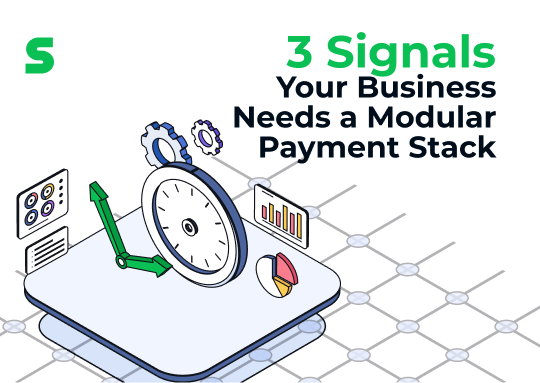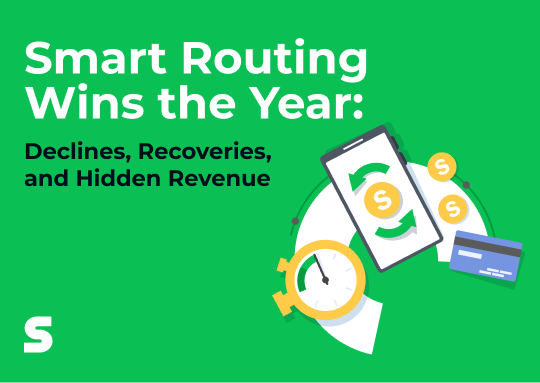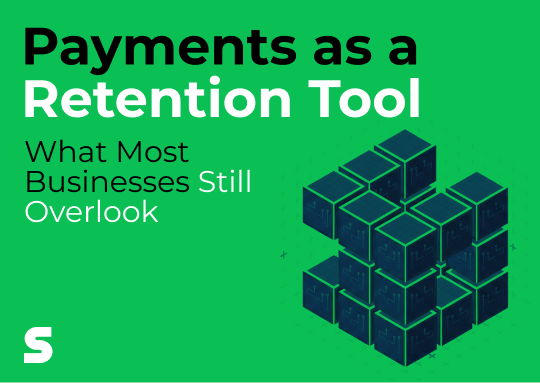Payment Gateway Explained: A Comprehensive Guide to Payment Solutions for EU Businesses
The e-commerce landscape in the EU is booming. With nearly 70% of citizens shopping online (according to the 2023 European Commission data), businesses have a golden opportunity to reach a vast and engaged audience. But complex payment methods can act as a roadblock, slowing down your sales process and frustrating customers.
This comprehensive guide dives deep into the world of payment gateways, equipping EU businesses with the knowledge to:
- Understand the different types of payment gateways and their functionalities.
- Grasp the advantages of integrating a payment gateway into their e-commerce strategy.
- Navigate the world of payment gateway charges and choose the most cost-effective solution.
- Identify the best payment gateway for their specific business needs.
Payment Gateways: The Secure Bridge Between You and Your Customers
Before we delve deeper, let’s address the burning question: what exactly is a payment gateway?
Think of a payment gateway as a secure bridge that connects your online store, your customers, and their banks. Thus, an example of a payment gateway might be the process of payment in any online shop. When a customer makes a purchase, the payment gateway acts as a trusted intermediary. It:
- Encrypts sensitive customer data like credit card numbers, ensuring maximum security during transactions.
- Facilitates communication between your website and the customer’s bank for authorization.
- Transfers funds securely from the customer’s account to yours once the payment is approved.
- Provides real-time transaction updates so you can track sales and manage your inventory.
Payment gateways also play a crucial role in complying with EU payment regulations like PSD2 (Payment Services Directive 2). This ensures a high level of security for online transactions, protecting both businesses and consumers.
What Are the Types of Payment Gateway?
Now that you understand the core functionality, let’s explore the different types of payment gateways available:
- Merchant Account Gateways: These are the most common type, requiring businesses to establish a merchant account with a bank or payment processor. The gateway then connects to this account for secure transaction processing.
- Payment Service Providers (PSPs): These all-in-one solutions offer merchant account services alongside payment gateway functionality. This simplifies the setup process for businesses.
- Independent Payment Gateways: These gateways act as standalone platforms, allowing businesses to connect with various payment processors and acquiring banks. This offers greater flexibility but requires additional setup and management.
The Cost of Convenience: Why Payment Gateway Charges?
While payment gateways streamline your operations and enhance security, they do come with associated charges. Here’s a breakdown of the most common fees:
- Transaction Fees: This is a percentage of each sale processed through the gateway. Rates can vary depending on the gateway, plan, and transaction type.
- Monthly Fees: Some gateways charge a fixed monthly subscription fee, regardless of transaction volume.
- Chargeback Fees: These occur when a customer disputes a transaction and their bank reverses the charges. Payment gateways may levy a fee for handling chargebacks.
- Setup Fees: Some gateways may charge a one-time setup fee to establish your account.
Why do Payment Gateway Charges Exist?
These fees cover the costs associated with maintaining a secure payment infrastructure, processing transactions, and preventing fraud. Additionally, payment gateways provide customer support, manage risk assessments, and ensure compliance with local regulations. At Spoynt, fees start from 1,9% per successful transaction.
A Sea of Options: A Glimpse into the Payment Gateway List
The world of payment gateways is vast, with numerous players offering diverse features and pricing structures. Here are just a few examples:
- SEPA (Single Euro Payments Area) is a pan-European instant payment scheme.
- PayPal: A well-known provider offering merchant account services and a variety of payment options.
- Mastercard is a global leader in payment and technology services.
- UPI is a real-time payment system that facilitates inter-bank transactions.
- Spoynt: A fast-growing fintech company specializing in international payment solutions for e-commerce businesses, with a particular focus on emerging markets.
Want to deepen your knowledge of online payment methods? Look no further: we have prepared the Payment Methods Encyclopedia, a comprehensive guide to navigating the ever-evolving landscape of online transactions. There, you can learn about all of the most trusted payment solutions for your business.
The Advantages of Payment Gateways: A Boon for Your EU Business
Integrating a payment gateway into your e-commerce strategy offers a multitude of benefits:
- Enhanced Security. Payment gateways handle sensitive data with advanced encryption protocols, minimizing the risk of fraud and chargebacks. At Spoynt, we guarantee that every processed payment reaches its final destination. For every payment processed, we invest our expertise, ensuring guaranteed returns for your business.
- Global Reach. Payment gateways break down geographical barriers by allowing you to accept payments from customers worldwide. They help you unlock new markets and increase business sales potential.
- Reduced Fraud Risk. Payment gateways employ sophisticated fraud detection tools to minimize the risk of fraudulent transactions. This protects your business from financial losses and chargebacks, allowing you to operate with greater peace of mind when selling internationally.
- Faster Transaction Settlements. Traditional payments can take days to clear, especially in cross-border payment cases. Payment gateways often offer faster settlement times, allowing you to receive funds quicker.
- Reduced Administrative Burden. Managing international payments can involve a lot of paperwork and manual processes. Payment gateways automate many of these tasks, freeing up your team’s time to focus on other business-critical activities.
- Compliance with Local or International Regulations. E-commerce transactions are subject to various regulations. Payment gateways stay updated on these regulations and ensure your business is compliant, reducing the risk of legal issues.
To sum up, a payment gateway is a tool to ease your business processes.
How Spoynt Can Help Your Business?
Spoynt goes beyond just processing payments. We are your partner in growth, offering a unique set of advantages for businesses:
- In-Depth Knowledge of International Payment Methods: We are experts in navigating the complexities of payments across borders. Our knowledge of emerging markets positions you for future expansion.
- Data-Driven Approach: We don’t just process payments; we analyze the data to provide actionable insights that can optimize your payment processing and drive sales growth.
- Focus on Results: Our goal is your success. We work to streamline your operations and increase your conversion rates.
- Personalized Solutions: We understand that one-size-fits-all solutions don’t work. We tailor our payment gateway solutions to your specific business needs, ensuring a perfect fit for optimal performance.
Ready to streamline your checkout process and unlock the full potential of your business?
Schedule a free consultation with Spoynt’s expert and discover how we can optimize your payment processing for growth.
Latest News
See all articles-
 Education
Education
3 Signals Your Business Needs a Modular Payment Stack
6 November, 2025 -
 Case studies
Case studies
Smart Routing Wins the Year: Declines, Recoveries, and Hidden Revenue
8 December, 2025 -

Payments as a Retention Tool: What Most Businesses Still Overlook
22 September, 2025







